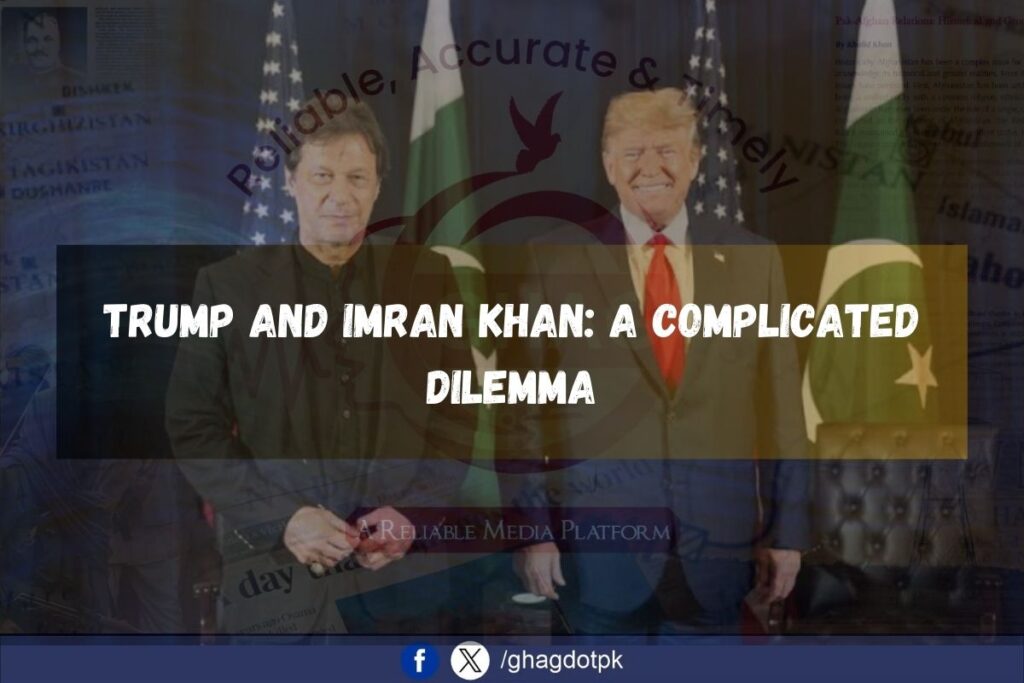Ghag Special Report
As the world watches the unfolding political saga of Imran Khan, former Prime Minister of Pakistan, a new question arises: Could Donald Trump, the former U.S. president, step in to advocate for Khan’s release? Speculation is rife in Pakistan, especially among Khan’s supporters, many of whom are hoping that Trump, once friendly with the embattled leader, might use his influence to secure Khan’s freedom.
For many PTI supporters, particularly those living abroad, there is a glimmer of hope that Trump’s previous positive relationship with Khan will motivate him to take action. These supporters have been lobbying American lawmakers, urging them to press Pakistan for Khan’s release. Recently, a boost came in the form of Richard Grenell, a prominent Republican, who publicly called for Khan’s release on social media. Grenell’s words, along with various online campaigns, have given the impression that Khan’s cause might be taken seriously in Washington.
However, the history of U.S.-Pakistan relations doesn’t lend itself easily to such interventions. Despite the camaraderie between Trump and Khan during their respective times in power, their relationship was far from smooth. Trump’s early presidency was marked by strained ties with Pakistan, especially after he halted military aid and accused the country of not doing enough to combat terrorism. While relations improved during the withdrawal of U.S. troops from Afghanistan, Trump’s stance on Pakistan was often one of tension rather than partnership.
Moreover, Khan’s outspoken criticism of the U.S., especially after his ousting in 2022, complicates matters. Khan has repeatedly accused Washington of interfering in Pakistan’s internal affairs and playing a role in his political downfall. These accusations have fueled anti-American sentiment in Pakistan, making it even more challenging for U.S. officials to publicly advocate for his release without facing backlash at home.
Even as PTI supporters remain hopeful, the reality is more complicated. The U.S. government has traditionally been cautious in intervening in Pakistan’s domestic political matters, particularly when such intervention could risk damaging strategic ties with Pakistan’s powerful military. The U.S. military’s relationship with Pakistan has always been a cornerstone of the bilateral relationship, and it is unlikely that the U.S. would jeopardize that over a political dispute involving one leader.
In the end, Trump’s influence may not be enough to change the course of Khan’s fate. The situation remains fluid, but it is clear that the dynamics of U.S.-Pakistan relations are far too intricate to allow for any quick solutions. While PTI’s efforts to lobby the U.S. may continue, it seems unlikely that Trump will intervene directly in this political crisis, at least not in a way that significantly alters Khan’s circumstances.






